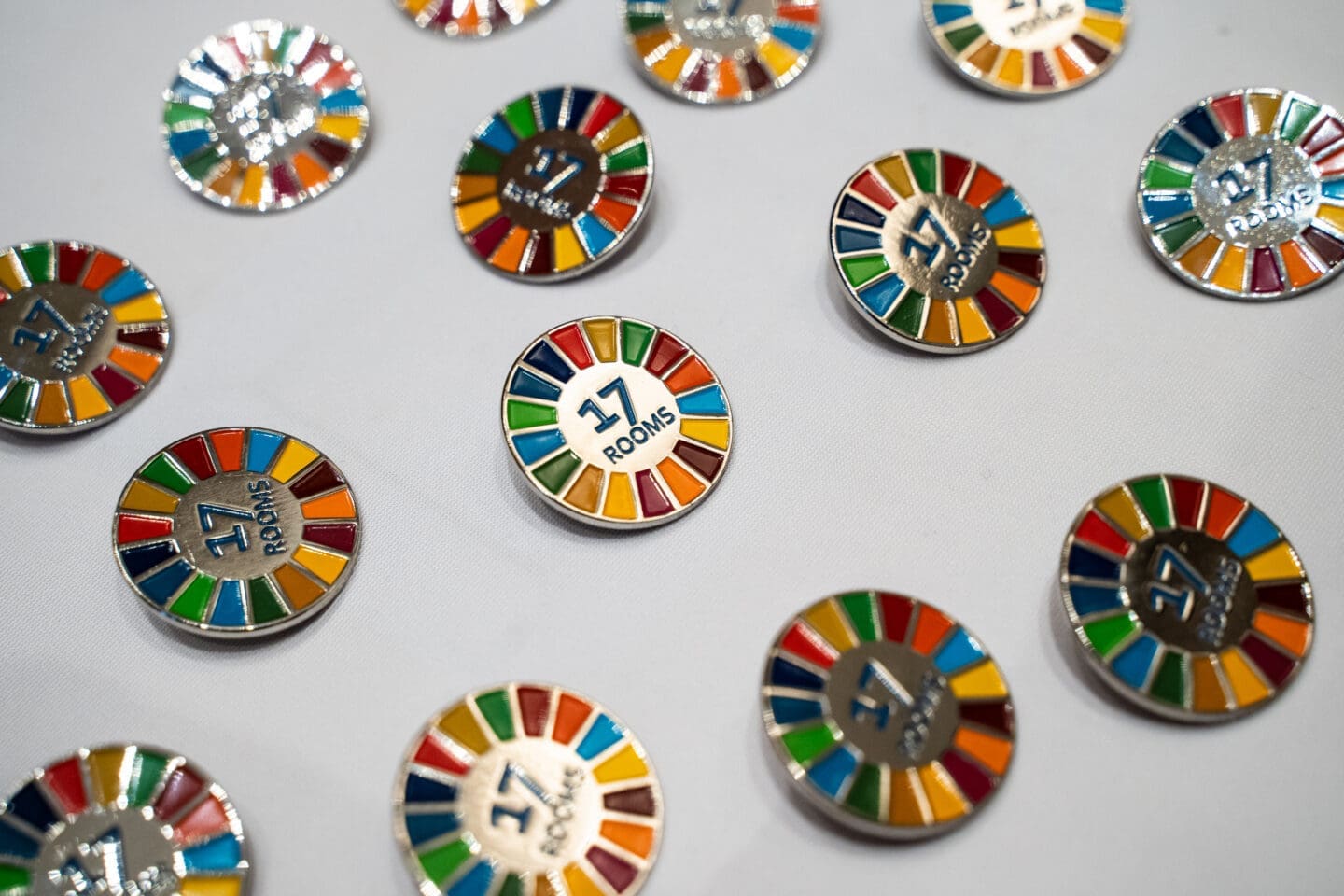Within communities, countries, and continents—it sometimes feels that we are stuck in addressing the world’s big and urgent economic, social, and environmental challenges. Too many of the existing institutions and processes meant to foster cooperation are not measuring up to the moment. The setbacks triggered by Covid-19 over the past two years have only made the need for progress all the more urgent.
The Sustainable Development Goals (SDGs) distill a cross-section of the world’s most important priorities. In addition to defining where we want to be in 2030, the 17 SDGs can also provide a template for the type of cooperation and cross-sector collaboration needed to get us there.
To harness the SDGs as a framework for action, The Brookings Institution’s Center for Sustainable Development once again joined forces with The Rockefeller Foundation to convene the fourth annual 17 Rooms global flagship process in 2021. 17 Rooms provides a neutral and creative space, alongside official processes, where leaders from different sectors and backgrounds connect to collaborate and carry forward the next steps for the SDGs.
Every year, 17 working groups or “Rooms,” one per SDG, come together to advance specific actions within their respective, while expanding opportunities for collaboration across the Goals. Each Room is encouraged to focus on actions that are of their SDG—a specific area of their Goal that they deem ripe for action over a 12-18 month period.
To confront Covid-19’s implications as the most gendered crisis in modern history, this year the 17 Rooms co-chairs also asked all Rooms to articulate how their actionable priorities would help drive equity for women and girls.
A full summary of this year’s Room actions and cross-Room exchange can be found in the recently released 17 Rooms synthesis report, Coming Together: Forging New Paths to Action for the Sustainable Development Goals. Room actions range from a push for new consensus on the role of global leadership in addressing inequities in access to Covid-19 vaccines, to harnessing the game-changing potential of Digital Public Goods (DPGs) to respond to emergencies, preempt disasters, broaden inclusion, and reduce poverty. Multiple Rooms seek to shift global systems of power and agency to provide greater support for local leaders and communities, while several other Rooms proposed new metrics, tools, and campaigns to make companies and investors more accountable to the true societal and environmental cost (and value) of doing business. Other Rooms called for mindset shifts in SDG ambitions, such as Room 6 reframing human waste management as a key input to tackling climate change, or Room 7 updating SDG energy access metrics to capture essential requirements for escaping poverty and supporting livelihoods.
Regarding actions to promote gender equality, Room 5 on SDG 5 is launching an effort bridging faith communities to promote more equitable approaches and outcomes for women and girls.
Moving forward, the 17 Rooms initiative will continue to prioritize gender equality and experiment with ways to advance relevant, action-oriented priorities across all SDGs.
This year’s flagship process also forged multiple forms of productive exchange between Rooms. This included matching expertise across Rooms based on specifically defined needs and bringing together Participants from all Rooms to discuss different perspectives on themes of shared interest. In some cases, Rooms chose to explore joint action. For example, in advancing Digital Public Goods (Room 1 and Room 9) and a cross-Room proposal for a “Natural Security Initiative” (Room 15, Room 13, Room 14).
This year, 17 Rooms also expanded the nature of its conversations. Recognizing that words on paper only go so far when it comes to sharing the ideas and insights that emerged through the flagship process, the secretariat decided to experiment with a podcast format. Through interviews between 17 Rooms co-chairs Zia Khan and John McArthur and each Room’s co-Moderators, the podcast explores the human stories behind how each Room’s leaders are thinking about their challenges and collaborating to get things done. Each episode can be found on Apple, Spotify, Google Podcasts, or the Brookings website.
As we reach the end of 2021, we reflect in awe at the extraordinary global community who so generously contributed their time, insights, and personal leadership to this year’s 17 Rooms global flagship process. All Rooms deserve tremendous credit for generating such practical agendas within such limited time constraints. But the real measure of success will lie in the delivery of the actions in 2022. If the world is feeling stuck on many of its biggest priorities, greater progress will boil down to people finding new ways to foster collaboration and partnership on those very same issues. 17 Rooms aims to help people find new ways to cooperate toward a more equitable and sustainable world.
- Report
Coming Together: Forging New Paths to Action for the Sustainable Development Goals
The Sustainable Development Goals (SDGs) embody many of the world’s foremost priorities for cooperation and call for new collaborative alliances across public, private, academic, civil society, and philanthropic sectors. Setbacks triggered by Covid-19 have only amplified the need for a new path forward. 17 Rooms is a new approach forging paths to progress for the […]Download PDF
Related Updates

17 Rooms
First launched in 2018, The 17 Rooms initiative is an experiment in stimulating new forms of collective action for the 17 Sustainable Development Goals (SDGs).
More